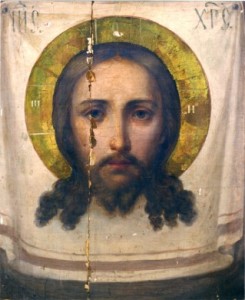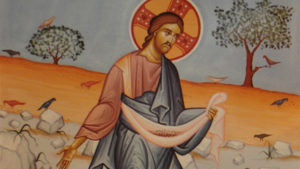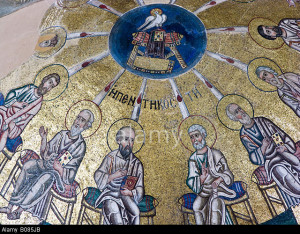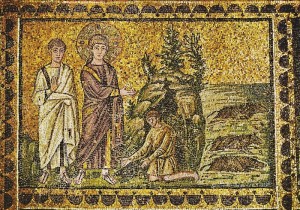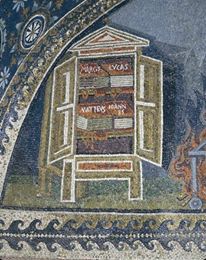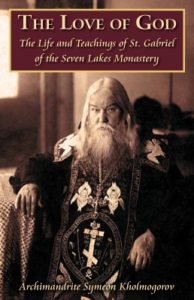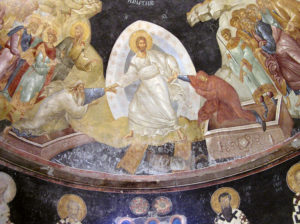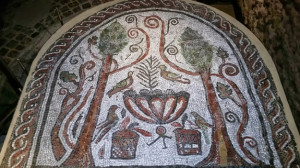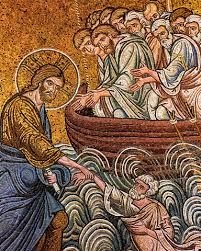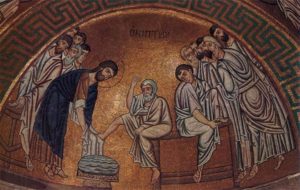16 August OS 2018 – Wednesday of the 14th Week of Matthew; Afterfeast of the Dormition; Feast of the Icon of the Lord “Not Made by Hands”
Today, the sixteenth of August, we honor the Holy Mandylion, the icon “Not Made by Hands.” Here is the account of the icon’s origin taken from the Prologue from Ochrid:
At the time when our Lord preached the Good News and healed every illness and infirmity of men, there lived in the city of Edessa on the shore of the Euphrates Prince Abgar who was completely infected with leprosy. He heard of Christ, the Healer of every pain and disease and sent an artist, Ananias, to Palestine with a letter to Christ in which he begged the Lord to come to Edessa and to cure him of leprosy. In the event that the Lord was unable to come, the prince ordered Ananias to portray His likeness and to bring it to him, believing that this likeness would be able to restore his health. The Lord answered that He was unable to come, for the time of His passion was approaching took a towel, wiped His face and, on the towel, His All-pure face was perfectly pictured. The Lord gave this towel to Ananias with the message that the prince will be healed by it, but not entirely, and later on, He would send him a messenger who would erase the remainder of his disease. Receiving the towel, Prince Abgar kissed it and the leprosy completely fell from his body but a little of it remained on his face. Later, the Apostle Thaddaeus, preaching the Gospel, came to Abgar and secretly healed and baptized him. The prince then destroyed the idols which stood before the gates of the city and above the gates he placed the towel with the likeness of Christ attached to wood, framed in a gold frame and adorned with pearls. Also, the prince wrote beneath the icon on the gates: “O Christ God, no one will be ashamed who hopes in You.” Later, one of Abgar’s great grandsons restored idolatry and the bishop of Edessa came by night and walled up that icon over the gates. Centuries then passed. During the reign of Emperor Justinian, the Persian King Chozroes attacked Edessa and the city was in great hardship. It happened that Eulabius, the Bishop of Edessa, had a vision of the All-Holy Theotokos who revealed to him the mystery of the sealed wall and the forgotten icon. The icon was discovered and, by its power, the Persian army was defeated.
This miraculous image undoubtedly served as the model for all subsequent icons of the sacred face of the Lord. Thus our iconographic tradition is based on an accurate image that Christ Himself gave us: this is what Jesus Christ looks like. This is the face of the God-Man.
When Moses spoke with God on Mt. Sinai, he asked to see God’s glory. Here is God’s answer:
And [Moses] said, I beseech thee, shew me thy glory. And [God] said, I will make all my goodness pass before thee, and I will proclaim the name of the LORD before thee; and will be gracious to whom I will be gracious, and will shew mercy on whom I will shew mercy. And he said, Thou canst not see my face: for there shall no man see me, and live. And the LORD said, Behold, there is a place by me, and thou shalt stand upon a rock: And it shall come to pass, while my glory passeth by, that I will put thee in a clift of the rock, and will cover thee with my hand while I pass by: And I will take away mine hand, and thou shalt see my back parts: but my face shall not be seen. – Exodus 33: 18-23
“…for there shall no man see me, and live.” “…but my face shall not be seen.” In the Old Testament, a chosen few, such as Moses and Elias, were graced with seeing God indistinctly, His “back parts.” If they had encountered God directly, they would have been struck dead. In the Gospel, we see a multitude of sinful men not only enabled to see God’s face, but to touch Him, to hear Him, to eat with Him and speak with Him. According to His human nature, they were even allowed to murder Him. What more can God do to show that He loves us?
Whenever our faith is weak, whenever the circumstances of life press upon us and we feel alone and helpless, whenever our spiritual life has become something theoretical and abstract, without inner warmth, without life-giving power: Let us go before the Icon of the Face of the Lord and read the Akathist to Our Lord Jesus Christ with attention. Let us ask God Who became Incarnate for us to renew in us holy zeal and the desire to do His will. “If you love Me,” says the Lord, “keep my commandments.” And what is the first commandment? “Thou shalt love the Lord thy God with all thy heart.”
Christ gave us this most accurate image of His Holy Face as a lasting pledge of His love for us. May it be a means of our growing in love for Him.

